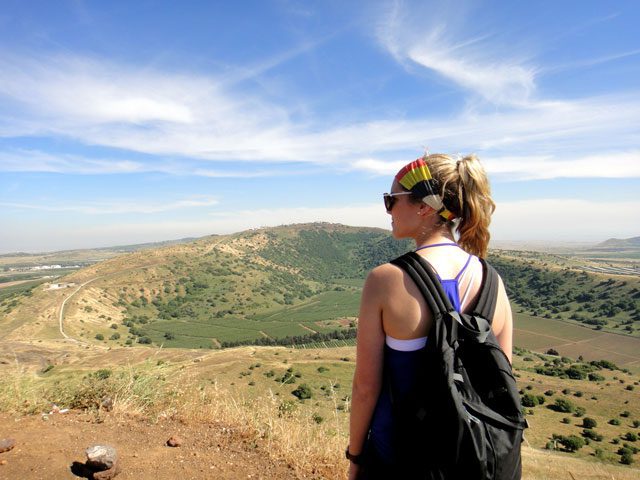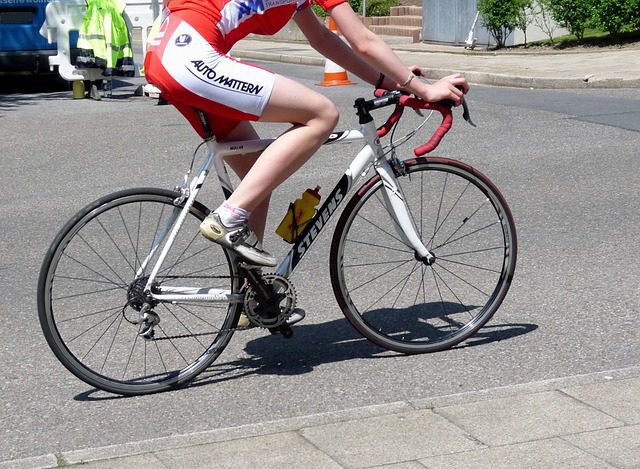
Finding purpose as a disciple on a trip to the Holy Land
By Brianne Zelinsky –
“Welcome to the Holy Land and, most importantly, welcome home.” Our tour guide, Tamar, smiled as she led us out of the airport in Tel Aviv and into the light of the Promised Land.
We were a group of 20 Salvationists from the Ontario Central-East Division who received funding for a trip to Israel and London, England, through the generous donation of a Salvationist from Toronto. I was elated to learn that the purpose of the pilgrimage was to connect young Salvationists to the roots of their faith by visiting the lands where Jesus and William Booth had ministered.
Israel, though scarce in fresh water, is blessed with an abundance of agriculture and is home to thousands of years of excavated history. Tamar’s welcoming remarks were true—I did feel at home on the cascading terrain of the Holy Land. While on the tour, I walked the streets of the Old City of Jerusalem, swam in the Sea of Galilee, floated in the Dead Sea and kayaked down the Jordan River.

Yet what had the greatest effect on me were not these adventures, but the moments where I stood in darkness. It was then that I felt God working in me.
Darkness first enveloped us when our group ventured 130 feet below the City of David in Jerusalem to walk through Hezekiah’s Tunnel, which was constructed more than 2,000 years ago to access fresh water. When I was about halfway through this stone tunnel, the eeriness of the space hit me and left me cold. As the stone walls narrowed and the water level rose, so did my anxiety.
Suddenly, I heard a voice singing at the back of the tunnel. As the song made its way up the line, the volume swelled, harmonies echoed off the walls, and anyone walking through there would have heard our jubilant voices belting out the chorus of “This Little Light of Mine.” That little light overcame the darkness.
Later, we found ourselves descending again, this time underneath the Church of St. Peter in Gallicantu. The church and its lower cavity, also known as the Sacred Pit, are located on the slope of Mount Zion. This pit is the holding cell where Jesus was imprisoned on the night of his arrest.
The cell was a cold, dimly lit stone dungeon with a hole carved in the ceiling. Prior to modern additions, the pit did not have any windows as a source of light, and there were no stairs descending to the bottom. It is believed that Jesus was lowered through the hole in the ceiling by a rope harness.
It was a humbling experience to stand at the bottom of the pit and imagine the pain that Christ suffered while in captivity. As our group gathered in a circle and reflected on the words of the chorus “Above All,” “He lived to die, rejected and alone,” I was disturbed by the thought that the Light of the World, someone so pure in heart, could be rejected by those he loved and cast into a pit of darkness. And then I was struck by the realization that I have also denied him, and he went to the cross anyway. Standing there in my own shame, I wept for him, knowing that in that place thousands of years ago, he probably wept for me, too.

Yet, somehow, even that cold dungeon could not compare to the darkness I witnessed at the peak of Mount Bental. While there, I could turn to my left and look out on the colourful canvas of Israel and, to my right, the dry land of Syria where rolls of detonated bombs and shell blasts sounded in the distance. Many of us paused and stood in silence as the conflict roared below. As much as I had heard of the unrest in Syria over the years, my heart broke knowing that while I was safe on a mountaintop, people on the ground were dying.
“Would you pray for the Syrians, Israelis and my family?” Tamar requested before we left. Our group stood together and prayed for peace throughout Syria and the surrounding countries, for political reconciliation, and that God would heal the nation and restore the lives of its people.
Walking away from the site, I felt stung—completely helpless. But just before I got back to the bus, I spotted a growth of poppies lining the hillside. This simple sign, affirming that our prayers were heard, lifted my spirits as I remembered that Jesus is the Prince of Peace. We serve a God who is alive, who has never left the Holy Land and who will never leave us.
Throughout the pilgrimage, and in that moment of heartbreak, I gained a new understanding of what it means to be a disciple of Christ. For me, it means striving to emulate Christ, not simply by walking where he has walked, but by giving off a light that no darkness can stand against. The Scripture verse, “You are the light of the world. A city on a hill cannot be hidden” (Matt. 5:14), has stuck with me since that day. Whether we are standing on a mountain or in a trench of darkness, hundreds of feet below the earth, God can use us, through our acts of prayer and praise, to glorify him and be a shining light to those around us.
Reprinted from Salvationist (Canada & Bermuda Territory)














Thank you for your very well written observations on your visit to the Holy Land. Your words brilliantly conveyed the desperation of people who exist there, yet also illuminated the fact that despite the danger, we as Christians can be a light in that darkness.